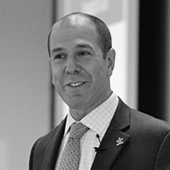
Listen to this story:
Decades of research have shown that intensive early intervention can improve autistic children’s cognitive, communicative and social abilities.
This research is far from perfect. The sample sizes in these studies tend to be small, and the data are often collected at least partially from parents, which may lead to bias. The studies also often measure outcomes over the course of months, at most, meaning that we have almost no data on the long-term effects of the interventions.
Still, many studies show promising enough outcomes with large enough effects that they should result in changes in community practice — so that more autistic children can experience the benefits that children in the studies do.
So far, however, most early-intervention and school-based practitioners do not deliver care that is in line with the evidence, according to the little research we have in this area. In fact, as my team and I found in a study published in June, community practice is not improving, even as more research about early intervention becomes available1.
We undertook this study because most other studies showing that community practice does not align with research are older, have tended to use data from only a single site and have not examined whether children’s outcomes are getting better over time.
We wanted to systematically examine community practice and assess whether the research-to-practice gap is closing over time. We also wanted to see whether other program characteristics, such as being affiliated with a university, being located in a certain country or the duration of the intervention, have an effect on children’s outcomes.
No progress:
We searched the peer-reviewed literature for any early-intervention study that had a control group that received community care or that presented the results of an early-intervention community program. The earliest study in our analysis was published in 2001, and the most recent study was published in 2017.
We looked at data from 46 groups of children in 33 studies conducted in nine countries. Most of these children came from the control groups in randomized trials; others came from evaluations of community programs.
We found that the average improvements in any area — cognition, communication, social ability and adaptive behavior — were small, although there was considerable variation among studies. Some outcomes were better in programs affiliated with universities or located in the United States.
However, children in the more recent studies did not show greater improvements than those in older studies.
Our study had some important limitations, many of which derive from the limitations of the studies we included in our analysis. For example, we do not have any information on the medium- or long-term outcomes of the participants, which is much more important than how they fare right after the study ends. Also, for most of the studies, we have no information on which specific interventions the children were receiving.
Regardless, we found, much to our distress, that community practice is not getting better over time. And the closing of the research-to-practice gap is not slow; it’s nonexistent.
Small steps:
Changing community practice is going to take dramatic and sustained efforts on the part of university-based researchers, community programs, policymakers and advocates. Each of these groups can take certain steps to begin to improve practice.
First, researchers must stop developing interventions in academic settings and start forming community partnerships.
University faculty with decades of training and experience get funding to test their interventions at full intensity, using university employees who are carefully trained and supervised. If researchers want community programs to use these interventions, they must develop and test interventions in partnership with staff from those programs.
Opportunities for this collaborative model will come only from building trust and communication between researchers and community program leaders, with a shared vision and priorities, and if interventions are developed using the resources available to community programs.
Second, community program leaders must change the expectations, supports and rewards for community practitioners working with autistic children.
We’ve seen from our own partnerships that clinicians are more likely to use evidence-based practices when supervisors make it clear that they expect clinicians to use them. In particular, when evaluation standards are tied to adherence to a particular program, use of that program goes up.
Clinicians also are more likely to use evidence-based interventions successfully when they receive specific feedback and modeling in the moment, and when they have the opportunity to say what types of supports would be most helpful to them. Clinicians who use these practices should be rewarded, ideally financially, but also by public acknowledgment of positive performance or with opportunities for advancement.
Finally, we must as a society fund special education and early intervention the way the law intended.
Early intervention and special education in general are underfunded mandates in the U.S.; since the Individuals with Disabilities Education Act was enacted in 1990, Congress has never appropriated more than 19 percent of the funds in the legislation. Low-income school districts, which often have disproportionately high numbers of children with disabilities, are working at an extreme disadvantage, because the lack of federal funding means that much special-education funding is tied to property taxes.
The end result is that the districts that need the most experienced clinicians and educators often pay the lowest wages and have the fewest resources to support their staff. These interventions are complicated to implement and require experienced, dedicated clinicians and educators. Thus, the poorest autistic students are the least likely to get the care they need.
If we truly value the well-being of autistic children, we as a society need to put our money where our values are.
David Mandell is professor of psychiatry and pediatrics at the University of Pennsylvania in Philadelphia and director of the Center for Mental Health.

By joining the discussion, you agree to our privacy policy.